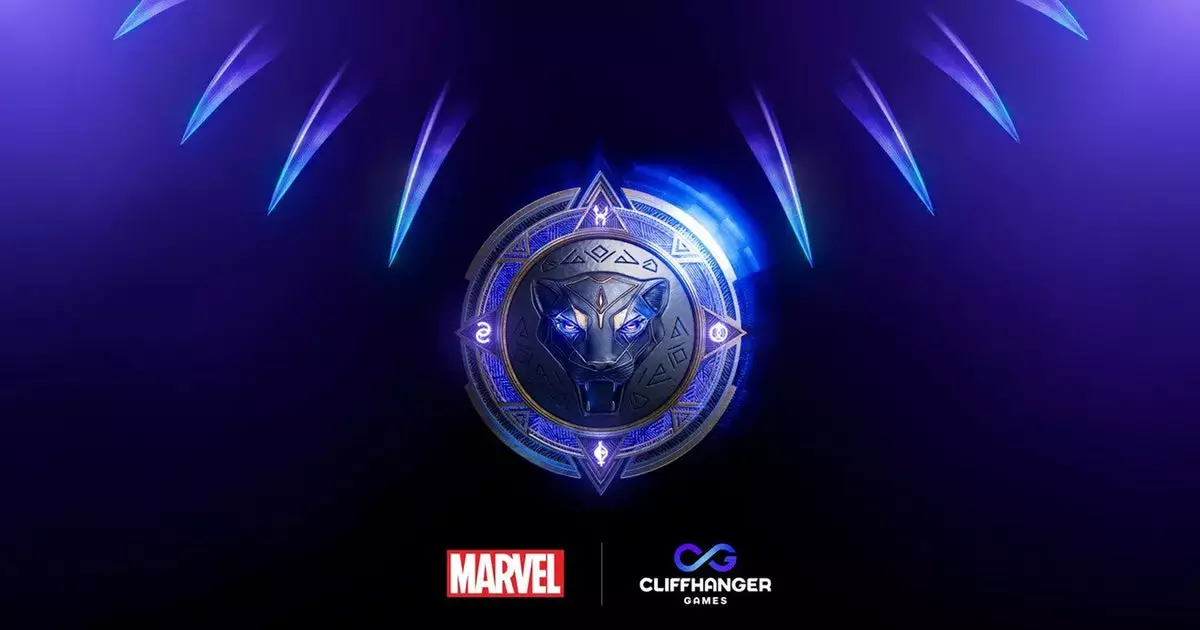EA’s recent decision to cancel the highly anticipated Black Panther game, developed by Cliffhanger Games, marks yet another misstep in a franchise that has often been criticized for its short-sightedness. It’s not just about a single game being shelved; it’s emblematic of a larger trend within the gaming industry, particularly for large corporations like EA that frequently prioritize financial metrics over creativity and investment in innovative projects. The announcement, which caught even the studio’s employees off guard, raises questions about EA’s commitment to nurturing new ideas and the potential of its own talent pool.
The Behind-the-Scenes Struggle
Reports from Bloomberg have painted a sobering picture of the internal dynamics at Cliffhanger Games. Despite being actively involved in hiring and having cleared a critical developmental gate, the studio found itself abruptly shut down. EA’s executives expressed frustration over the game lingering in pre-production, a setback they attributed to an influx of new hires who, ironically, were brought on to breathe new life into the project. This ironic twist only adds to the confusion surrounding EA’s decision-making process; it reveals an apparent lack of foresight on the part of executives who seem unable to manage the delicate balance between innovation and productivity.
The Promise of Game Mechanics
The game itself promised to explore rich narrative opportunities through its characters, notably T’Challa, Killmonger, and Shuri—all iconic figures from the Marvel universe. This trio was designed to compete for the Black Panther mantle, offering players a chance to build intricate relationships and rivalries while navigating conflicts posed by the Skrulls. The proposed Nemesis system was set to take these interactions to new heights, allowing for dynamic storytelling that could evolve based on player choices. Building on an established and beloved mechanic like Monolith’s Nemesis System could have ushered in a new era for narrative-driven gameplay, specifically around a character as multifaceted as Black Panther.
Understanding EA’s Shortcomings
However, the fundamental flaw in this scenario seems to be EA’s rigid focus on short-term profitability rather than long-term investment in creative projects. Although the slow pace of development at Cliffhanger was a point of contention, the underlying issue lies in how companies evaluate potential. Creating games is inherently complex and often involves a lengthy developmental cycle, especially for ambitious projects. The inability of EA’s decision-makers to appreciate this inevitability speaks to a greater misunderstanding of the creative process in game development.
Furthermore, the broader implications of EA’s recent actions can’t be overlooked. While executives like CEO Andrew Wilson and EA Entertainment president Laura Miele have padded their pockets with multi-million dollar salaries, the fallout for the dedicated staff behind ambitious projects is profound. The stark contrast between executive compensation and the reality of layoffs feels jarring, especially when those left in the lurch were genuinely committed to pushing boundaries within the gaming landscape.
An Industry at a Crossroads
EA’s cancellation of the Black Panther game serves as a critical reflection point in an industry grappling with its identity. It highlights a systemic issue where creative potential is frequently stifled by corporate priorities and the quest for fiscal success. The gaming community, often passionate and vocal, has begun to rally around indie studios that are willing to take risks in narrative and gameplay, indicating a shift toward valuing innovation over profit margins.
The plight of Cliffhanger Games isn’t merely a setback for EA; it serves as a cautionary tale for large publishers about the consequences of undervaluing creativity. As studios grapple with these suspensions and closures, they must advocate for models that allow for creative risk-taking to flourish. The dynamic storytelling and rich narrative explorations that games like Black Panther could have delivered should urge the industry to rethink its standards and promote environments where creativity can thrive rather than languish.

